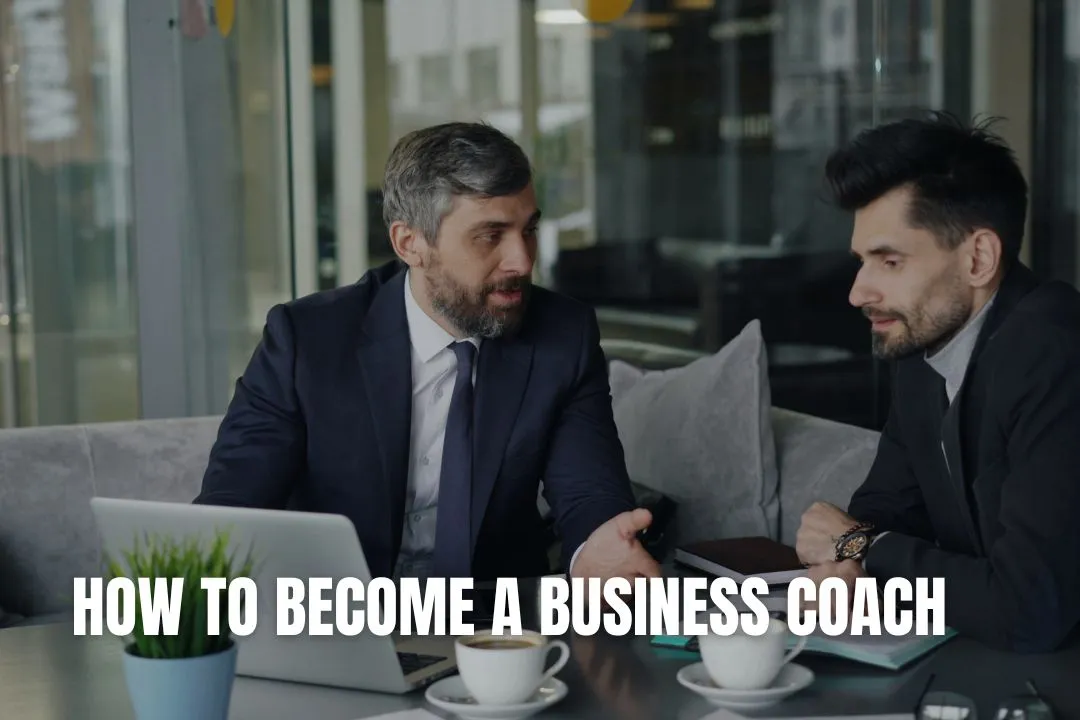
Editorial Disclaimer
This content is published for general information and editorial purposes only. It does not constitute financial, investment, or legal advice, nor should it be relied upon as such. Any mention of companies, platforms, or services does not imply endorsement or recommendation. We are not affiliated with, nor do we accept responsibility for, any third-party entities referenced. Financial markets and company circumstances can change rapidly. Readers should perform their own independent research and seek professional advice before making any financial or investment decisions.
Business coaching isn’t a perk anymore. It’s a necessity. Founders, entrepreneurs, even scrappy first hires are looking for it. The industry is already worth $20 billion and climbing fast.
Why? Because business today moves at breakneck speed. Markets flip overnight. Teams grow faster than leaders can handle. Priorities pile up until decision fatigue sets in.
A coach doesn’t show up with magic formulas. A coach is the steady outside voice. The person who cuts through noise, asks the uncomfortable questions, and keeps leaders honest when momentum wobbles.
Think of it like this: business is a storm. A coach doesn’t stop the storm. They help you steer the ship.
Skip the shiny branding for a minute. Forget websites, logos, or funnels. Ask yourself:
Your “why” is the anchor. Without it, you’ll drift. Coaches who chase trends without purpose burn out fast.
Maybe you’ve built and sold a business and want to share what you learned. Maybe you’ve managed high-performing teams and know the struggles of leadership firsthand. Maybe you’ve been the lone founder, figuring it all out in a garage, and you want to help the next one avoid your mistakes.
Own that story. That’s your starting point.
The biggest trap? Trying to coach everyone. You’ll end up coaching no one.
Generalists get ignored. Specialists get remembered.
Examples:
Your niche is your home turf. It gives you language. It gives you stories. It makes clients say, “That’s exactly me.”
Here’s the truth: people don’t care about your coaching certificate. They care about your scars.
If you’ve grown a company, managed through a downturn, fired the wrong person, hired the right one, or pivoted under pressure, you’ve got experience worth paying for.
Tell those stories. Don’t polish them. Don’t sanitise them. Realness builds trust.
Think about it. Would you rather be coached by someone who memorised a framework or someone who’s been through the fire and can tell you what burns and what doesn’t?
That said, coaching is more than sharing war stories. It’s a craft.
Good coaching means:
Frameworks help. So do short programs that sharpen your techniques. But remember that the tools are only as good as the trust you build.
Random chats don’t scale. A system does.
Your coaching should have a structure that clients can hold onto. It makes you credible, and it helps them track progress.
Examples:
Systems aren’t about rigidity. They’re about rhythm. Without rhythm, coaching drifts into “just talking.”
Here’s where most people freeze. Getting clients feels scary.
Forget perfection. Forget fancy funnels. Start with what you already have.
The goal? Get the first five clients. That’s it. Five is enough to prove your system, refine your offer, and build momentum.
Don’t sell hours. You’ll trap yourself.
Sell outcomes. Clients pay for results, not time spent on Zoom.
Examples:
Outcome-based packages let you charge more and attract serious clients. They also keep the focus on impact, not clock-watching.
The worst thing a coach can do? Stop learning.
Keep reading. Take courses. Stay curious. Watch trends in leadership, psychology, and industries where your clients live. Even niche areas like fintech recruitment can give you insights that make you sharper than the average coach.
Think of it this way: your growth fuels their growth. If you stagnate, so will your coaching.
You don’t need 20 years of experience. You don’t need to hang a dozen certificates on your wall.
You need clarity. A niche. A system. The courage to start.
Business coaching isn’t about you being the hero. It’s about helping someone else step into that role. Your job is to shine the light, ask the hard questions, and hold the space where change actually happens.
Start small. Stay honest. Keep showing up. That’s how you become a business coach.
No, a formal certification isn't the most important thing. Clients are far more interested in your real-world experience, your successes, and even your failures. Your 'scars' and the lessons you've learned from them are what build trust and demonstrate your ability to guide them effectively.
You can start by focusing on simple, direct methods. Tell your network that you're coaching and ask for introductions. Share your knowledge through short articles or videos to demonstrate your expertise. You could also offer a free, genuinely helpful workshop to attract potential clients and show them the value you provide.
It is much better to specialise. Trying to coach everyone often results in coaching no one. When you pick a specific niche, such as coaching tech start-up founders or retail managers, your message becomes clearer and more powerful, attracting clients who feel you truly understand their unique challenges.
You should avoid selling your time by the hour. Instead, package your services based on the outcomes or results you help clients achieve. For example, you could offer a '90-day growth sprint' or a 'six-month leadership transition' package. This focuses the engagement on value and impact, not just time spent in meetings.
The most critical first step is to define your 'why'. Before you do anything else, you need to be very clear about why you want to coach, who you want to serve, and what specific problems you are passionate about solving. This purpose will guide all your future decisions.